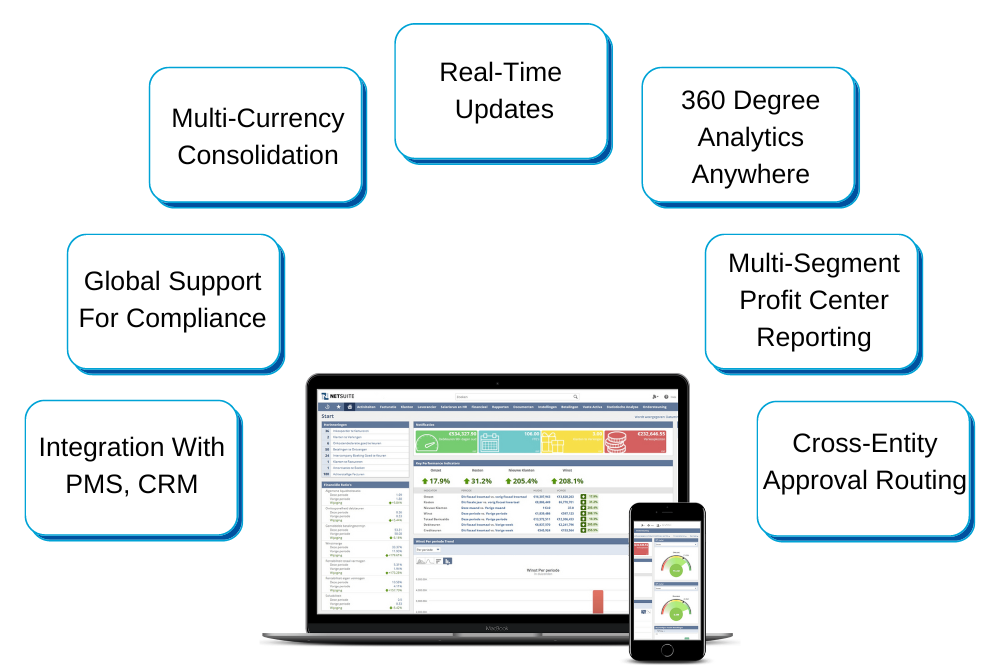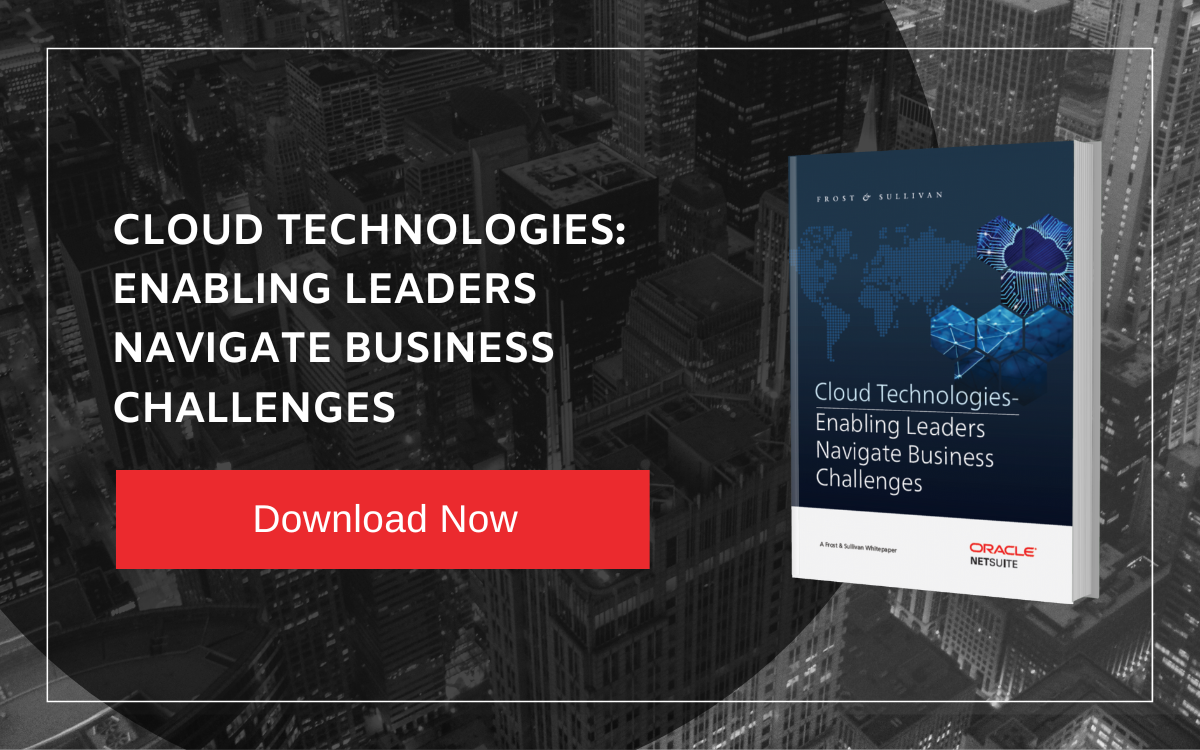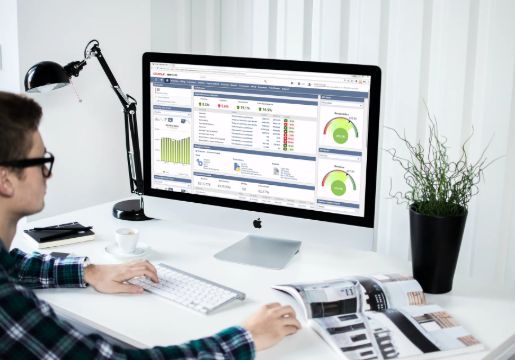In an industry as competitive as hospitality, you’ll encounter many external factors that will impact your hotel’s business operations.
Nowhere was this made more apparent than with the COVID-19 pandemic, which greatly affected the profitability of boutique hotels like yours.
Now that the industry is recovering, it’s more imperative than ever that you seize upon any opportunity to acquire a competitive edge for your hotel or hotel chain.
And one way to do this is to increase the overall productivity, streamline business processes, and lower the operational costs of your business with the implementation of a cloud ERP software.
But with the specific business requirements of the hospitality industry, what are the benefits that an ERP software can offer for your boutique hotel or hotel chain?
Let’s take a look at some of these benefits.
Take A Look At The Technology Trends That Will Define The Hotel Industry Post-Pandemic.
Cloud ERP Software Enables Regional Operations For Hotel Chains
 An overview of Oracle-NetSuite ERP functionalities to support your business' regional operations/expansions ;Source: AFON
An overview of Oracle-NetSuite ERP functionalities to support your business' regional operations/expansions ;Source: AFON
The various departments in your hotel are probably using their own software solutions of choice, which are designed to help manage the specific operational processes they’re each responsible for.
For example, your customer-facing teams would use front-office solutions such as customer relationship management (CRM) and point-of-sales (POS) software, while your back office might use entirely different software for inventory management and housekeeping amongst others.
The problem with this arrangement is that these software systems might not be compatible with each other, or otherwise form a data silo that doesn’t communicate or share data with other systems in your hotel.
This prevents you from getting full visibility into the status of your business processes, and makes managing your hotel more complex than it has to be.
If you’re operating a hotel chain that operates in multiple geographic locations, where each individual establishment uses the local currency and has to adhere to different taxation and regulatory regimes, this complexity is compounded even further.
A cloud ERP software is the ideal solution for this issue. It integrates all of your disparate software systems under one roof, and acts as a centralised management system which makes it easier for you to delegate and manage tasks.
More importantly, it unifies all the data stored in those systems, and uses it to generate reports that give you a single source of truth into your business in real-time.
With the right cloud ERP software, you’ll also get indispensable features such as multi-language/multi-currency support which enable your operations in multiple locales.
Therefore, not only does a cloud ERP software get you the actionable insights you need to inform your strategic decisions, it also greatly improves your ability to manage your hotel chain even on a regional scale.
Cloud ERP Software Enables Hotels To Provide Personalised Guest Experiences
%20(1).jpg?width=1000&name=shutterstock_641181049_1920_compressed%20(1)%20(1).jpg)
Today’s guests are less easy to satisfy than ever before. With advances in technology over the last few years, the way your customer base consume hospitality services – such as your hotel rooms – have changed.
For one, they’re now more likely to book their reservations at any hour of the day, using a wide variety of mobile devices.
If your business isn’t properly equipped to handle bookings on this level of complexity, it could result in a suboptimal booking experience for your potential guests, and ultimately a loss in bookings and thus revenue.
More importantly, your customer base enjoys many more options than they used to. The rise of homestay apps such as AirBNB mean even stronger competition for your hotel or hotel chain, as they offer a potentially more affordable choice.
Even without taking homestay into account, your customer base can easily compare your hotel with your competitors with mobile devices as well. This means that even within the hospitality industry, your business is facing more competition than ever.
What this means is that to attract more guests in the face of such fierce competition, your hotel or hotel chain needs to provide outstanding service.
And implementing a cloud ERP software for your business can help you do that in several ways.
Firstly, because an ERP software unifies your data, you can be sure that your reservations records are up to date. You’ll be able to view your hotel’s overall occupancy rates, update the status of each room, and predict future occupancy trends more accurately.
Your occupancy data could also be made available to both your front desk and your website in real-time, thanks to the cloud ERP software integrating the systems behind them so they can share said data.
This provides the same data to both your front-desk personnel and your guests, so that both sides are fully aware of which rooms are vacant and available for incoming guests at any one time.
More importantly, because a cloud ERP software serves as a repository for all of your data, it becomes much easier to conduct data analysis on it.
This helps you identify and track each of your guests’ tastes, room and restaurant preferences. With this information, you can provide a more personalised guest experience for their next stay, and offer targeted deals to repeat customers.
This will entice your regular guests to stay loyal to your hotel or hotel chains in the future, which can be a great boost to your bottom line.
Transitioning To Cloud ERP Software Brings Cost Savings For Hotels
%20(1).png?width=1000&name=On-premises-vs-Cloud-based%20Comparison%20(1)%20(1).png) Comparing The Costs of On-Premise VS Cloud; Source: Columbus
Comparing The Costs of On-Premise VS Cloud; Source: Columbus
If your hotel or hotel chain is still reliant on multiple legacy systems across departments to manage your operations, you might’ve noticed that your IT overhead comprises a significant part of your costs.
Not only would you need a sizable in-house IT team to conduct maintenance and update the security for each individual system, you’d have to conduct training in the operation of each system for your staff as well.
But relying on multiple, on-premise legacy systems can be costly for your business in another way; because data is siloed within each individual system, you’d lack visibility into your business processes as we’ve covered earlier.
This lack of visibility also means it’s that much harder for you to identify potential issues in your business processes, and be able to react to them in time.
This failure to address issues in a timely manner could then lead to negative consequences for your hotel or hotel chain, such as lost customers and revenue.
Implementing a cloud ERP software can bring significant cost savings for your hotel or hotel chain in several ways.
Firstly, by transitioning from multiple on-premise legacy systems to a single cloud-based solution, you can substantially cut down on IT overheads due to the latter’s relative ease of maintenance.
Cloud ERP software also receive automatic updates on a regular schedule, which helps your business maintain data security without the need to spend resources on it.
And because your entire business is now running on a single system, it also means you only need to conduct staff training for the cloud ERP software, cutting down on training costs.
Lastly, because a cloud ERP software provides full visibility into your business processes, you’ll be more able to identify and resolve issues in your processes long before they grow into a costly problem.
Cloud ERP Software Have Much To Offer For Hotels
%20(1).jpg?width=1000&name=shutterstock_785352052_1920_compressed%20(1)%20(1).jpg)
We highly recommend that your hotel or hotel chain upgrade to a cloud ERP software, because it can offer some very important benefits for your business.
Because it can integrate with various software systems in use across multiple locations, a cloud ERP software can unify all the data being generated across your business, including your overseas establishments.
A cloud ERP software like Oracle NetSuite OneWorld, which offers support for multi-language and multi-currency as well as compliance with multiple taxation and regulatory regimes, can also greatly streamline the operations of a hotel chain operating across multiple countries.
Cloud ERP software unifies data across your entire business, which makes data analysis possible and enables you to provide personalised customer service for your guests; this encourages repeat business from loyal customers of your hotel or hotel chain.
And last but not least, implementing a cloud ERP software can bring significant cost savings for your hospitality business in several ways, such as lower maintenance, security and training costs.
Apart from these, there are other ways a cloud ERP software can help your hotel or hotel chain navigate any business challenges it might encounter.
To find out how, click on the image below to learn more.




